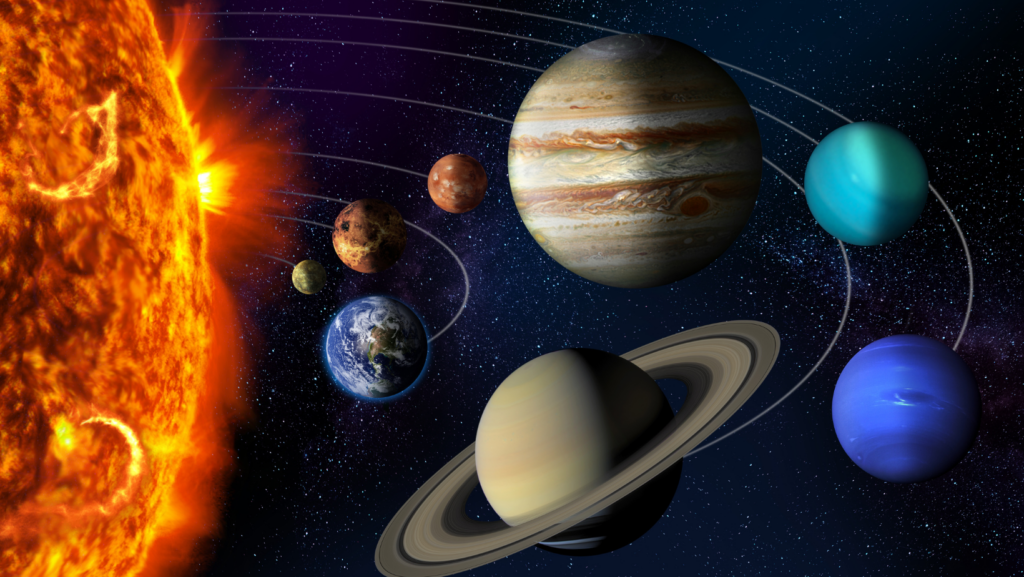Despite Mercury’s closer proximity to the sun, it’s Venus that holds the title for the hottest planet in our solar system. This fact often leaves space enthusiasts puzzled. After all, shouldn’t the planet closest to the sun be the most sweltering?
Well, there’s more to this interstellar mystery than meets the eye and to answer the question why is venus hotter than mercury. The answer lies not in their respective distances from the sun, but in the unique characteristics of each planet’s atmosphere. Let’s delve into the fascinating world of planetary science to uncover why Venus, not Mercury, is the solar system’s ultimate hot spot.
Why is Venus Hotter Than Mercury?

Corollary to the previously discussed effects of solar radiation intensity on planteray temperatures, to know why is Venus hotter than Mercury we must put into consideration the atmosphere and compositional differences fundamentally account for Venus’s hotter climate. The atmosphere of Venus contrastingly differs from Mercury’s almost non-existent atmosphere, making it vital to understand each planet’s atmospheric constituents.
Composition of Venus’s Atmosphere
Comprised primarily of carbon dioxide (96.5%), Venus’s atmosphere serves as a potent heat trap. Trace amounts of nitrogen (3.5%), coupled with marginal amounts of other gases such as sulphur dioxide and argon, contribute to its composition. Notably, a phenomenon known as the greenhouse effect plays out extensively on Venus. This effect, perpetuated by its thick atmosphere, facilitates the capture and retention of solar heat. Clouds of sulphuric acid envelop the planet amplifying this effect by reflecting sunlight back to the surface, resulting in Venus’s exceptionally high surface temperature.
Mercury’s Lack of Substantial Atmosphere
In stark contrast, Mercury’s atmosphere, often referred to as an exosphere, is significantly thin and barely existent. Essentially, this exosphere comprises atoms blasted off its surface by solar radiation. Constituents such as hydrogen, helium, and oxygen persist in this exosphere, albeit in minute amounts. Given Mercury’s close proximity to the sun, most of these particles quickly escape into space, offering no substantial medium to trap or retain heat. Consequently, Mercury’s surface experiences extreme temperature swings, from scorching highs during daytime to severe lows in the absence of sunlight, but it never maintains a consistently high temperature as Venus does.
The Greenhouse Effect on Venus

Venus showcases a strong greenhouse effect, resulting in its well-recognized intense heat, and answers why is venus hotter than mercury. This section delves deeper into the greenhouse effect, highlighting its profound influence on Venus’s climatic conditions.
Defining the Greenhouse Effect
In essence, the greenhouse effect refers to a natural heating phenomenon that occurs when certain gases in a planet’s atmosphere trap heat from the sun. These gases, aptly named greenhouse gases, include carbon dioxide, methane, nitrous oxide, and water vapor, which collectively form a sort of “thermal blanket.” This blanket lets solar radiation in but inhibits a portion of the outgoing thermal infrared radiation from escaping back into space. The consequent heat retention raises the planet’s surface temperature, essentially resulting in what’s known as the ‘greenhouse effect.’
Why Venus Has a Strong Greenhouse Effect
Venus experiences a powerful greenhouse effect primarily due to its atmospheric composition. Predominantly filled with carbon dioxide (96.5%), a potent greenhouse gas, Venus’s atmosphere proves extremely efficient at trapping and retaining solar radiation. Additionally, Venus’s cloud layers contain droplets of sulfuric acid, which further augments the planet’s ability to retain heat. Therefore, despite being farther from the sun than Mercury, Venus remains the hottest planet in our solar system, thanks to its robust greenhouse effect.
Comparisons and Misconceptions

Planetary thermodynamics won’t always line up with what people perceive to be the obvious facts. This section scrutinizes those misconceptions and contrasts the conditions prevalent on Venus and Mercury.
Speculations frequently arise that the planet closest to the Sun, Mercury, represents the hottest. However, it’s Venus, the second closest, that holds this title. A common misconception, Mercury’s position closer to the sun does not necessarily make it hotter. A key player here is each planet’s atmosphere, or lack thereof.

